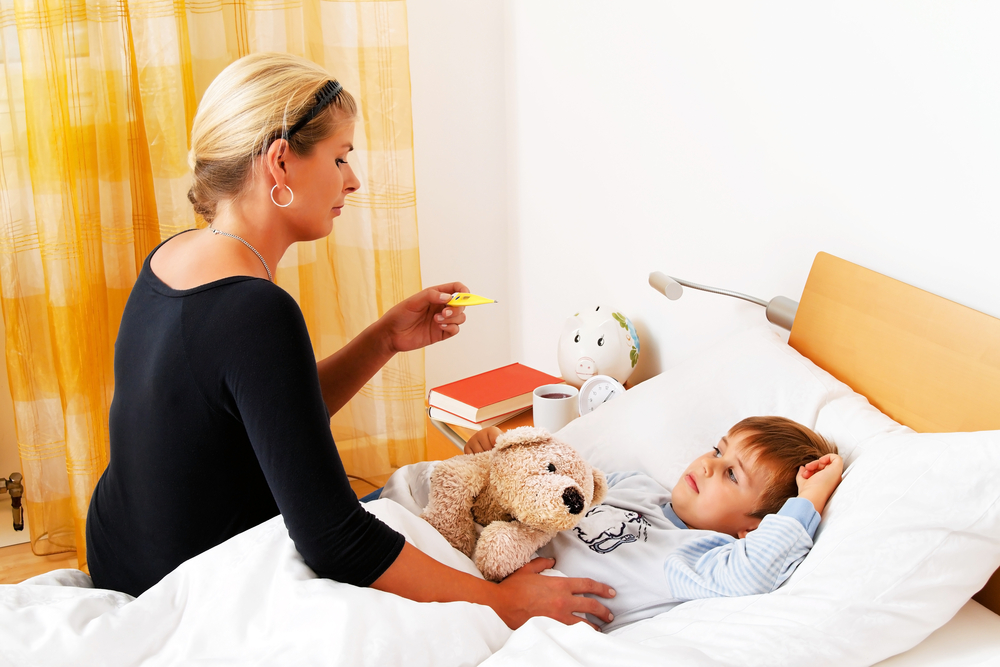What You Need to Do if Your Child Has the Flu
Flu is a viral infection that can occur at any age. However, flu in children is very common as their immune system is still developing, making them prone to infections. Common flu symptoms in children can be fever, stuffy nose, muscle ache and sore throat. You can consult with your child’s doctor for treating the flu. If you are uncertain when to call the doctor, the right thing would be to do so as the flu symptoms develop.

If the symptoms worsen or if your kid has other respiratory problems, talk to your doctor for the right care plan.
But flu resolves without treatment within 7-10 days. You can follow the doctor’s recommendations and also take certain steps to make your child comfortable during the recovery process.
But flu resolves without treatment within 7-10 days. You can follow the doctor’s recommendations and also take certain steps to make your child comfortable during the recovery process.
Here are some tips to tackle flu in kids:
- Make sure your child gets adequate rest and sleep during flu bouts. Flu can make the body weak. Muscle ache can make your child irritable. With proper rest, your child’s body will recover soon and your child will also feel better.
- Ensure that your child drinks sufficient fluids. Fever during flu can cause dehydration. Along with freshwater, offer your child fresh fruit juices and whole fruits such as oranges, grapes and melons. Vegetable soups can also offer hydration to the body and can also be quite comforting to consume during flu bouts. Severe dehydration can lead to complications requiring hospitalization. Dehydrations signs can be very dry lips, lack of tears when kids are crying, not urinating much, listlessness etc. If you are nursing an infant with flu, offer your child breast milk and water more than usual.
- Flu in children can also cause diarrhea. To prevent dehydration from diarrhea bouts, offer your kid water mixed with sugar and salt. This solution will help replenish salt, minerals, and water lost due to frequent loose motions.
- Flu can not only cause fever but also chills. So, ensure your kids wear proper clothing depending on whether they are feeling cold or hot.
- Refrain from offering OTC pain or fever medicines to kids. Only give those medicines that your child’s doctor has prescribed for managing flu symptoms.
- Flu in children can cause throat soreness or pain. If your child is old enough to gargle, you can offer him warm water with salt for soothing throat pain.
- Use humidifiers to help unclog their stuffy noses. Doctors don’t recommend medicines such as nasal sprays for kids. You can use saline drops though.
- Avoid giving baths to your kids if they have the flu. If they are comfortable or don’t have fever, and the doctor recommends one, then a warm or hot water bath can help aching muscles and unclog stuffy nose. But otherwise keep your kids away from cool water or regular bathing schedule.
- Flu can cause dry lips and the skin under the nose can cut and bleed due to snot. You can apply any safe ointment or moisturizer for kids on these affected parts.
- Refrain from using home remedies or treatments if you are not sure about their usefulness or side effects. For example, honey is an old-age remedy for treating cough and sore throat. But honey is dangerous to give to kids younger than a year. The reason is that honey contains an organism that can be dangerous for kids when their immune system is not ready to tackle the infection. Similarly, using aspirin without doctor’s recommendation is not ideal as some kids develop Reye syndrome with its use. It is a rare disease that affects brain and liver.
Disclaimer:
The content of the articles discussing symptoms, treatments, health conditions, and side effects is solely intended for informational purposes. It is imperative that readers do not interpret the information provided on the website as professional advice. Readers are requested to use their discretion and refrain from treating the suggestions or opinions provided by the writers and editors as medical advice. It is important to seek the help of licensed and expert healthcare professionals when necessary.



